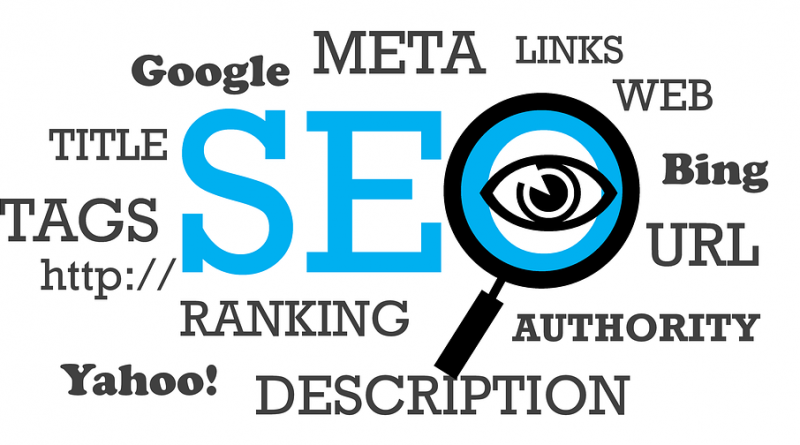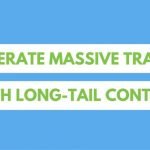Local search engine optimization is what rings in every webmaster’s expert mind every webmaster want to be expert in local search engine optimization. Each and every webmaster wants his or her property to rank ahead of everything on the web in their niche of the website and some even want to take over the ranking of niches to which they do not belong, which explains why search engines had to abandon the use of meta tags because of spamming with people using all those free porn videos on a site that deals with school papers or vice versa.
Apparently, it wasn’t such a terrible decision by the search engines to have done away with them because they made it hard to determine what exactly the page contains, what it should be ranked for and how good the ranking should be. Apparently, search engines had to turn ranking the content itself instead of tags and some content whose legitimacy totally depends on trusting the administrator of the page. Trust doesn’t work anymore. Not in the real world.
So how now does it work, now that you don’t tell the search engines what to rank you for? Where does one concentrate on to raise his or her rankings on a certain page on your site?
Optimise web Page Use SEO friendly Permalink URLs
A permalink is, before we get to its meaning, is a combination of two words: permanent and link. This makes it something quite important since it is not expected to change any time. You must therefore make these worthwhile. Let’s take three simple permalinks:
- http://jsmwebsolutions.com/example-article/
- http://jsmwebsolutions.com/sjfa9398503488/
- http://jsmwebsolutions.com/posts?id=sjfa9398503488
If you observe these, you’ll realise that one makes sense while two are complete gibberish. Well, something you need to know as you venture into the search engine optimisation world. Search engines trying to mimic human beings. This means that you need to make it as clear what you are linking to in the permalink itself.
For a good permalink, if you have a focus keyword in your article, you need to include this in your URL. This makes it clear from the beginning that you are talking about something in particular, right from the permalink itself. When the search engines access a natural human-like hurl, it is likely that it would be ranked higher.
Optimise web Page Start Title with your Focus Keyword
Your focus keyword is the most important thing in the content you are creating and with the content itself, the most important thing is the title. This is why you must let your title focus on your focus keyword. I mean, however good your content is, if the title sucks, you can be sure no one will read it. And this applies to search engines too. Somehow. Search engines find a title sucking when they can’t find the focus keyword at the beginning of it.
You don’t always have to start with the focus keyword, but if there’s that keyword or key-phrase that you are trying to gun for, make sure you have it towards the beginning of the title for the best results in your SEO hunt or for Optimise web Page.
Optimise web Page Play About With Multimedia
local search engine optimization Long articles full of text and text and just nothing else, as you might guess, sucks. First of all, images make an impression on people that keeps them just them on your page for much longer, which increases their time on site, which eventually results to a better ranking on Google. However, not only do the images increase your site ranking but also increase your user experience. They make it easier for the users to understand what you are talking about.
Another type of a highly ranking multimedia type that increases your ranking as well as work on your site is the videos. Videos are more preferred by most people and have their own ranking that is not as crowded as the textual search. This increases your chances of ranking higher miraculously to the point where you feel like turning your website into some sort of YouTube. This is not meant to make your site a video site though, but it should send the right signals to you… that videos may be your key to unlimited traffic for your new site.
Optimise web Page Use Outbound Link
local search engine optimization Use of outbound links isn’t a way of praising the sites you link back to. Most of the times, linking back to other sites is more a show of relevance of content other than anything else that might include internal linking. Not to say that internal linking is not power. In fact, internal linking is one of the major criteria that search engines use to gauge the genuineness of content. Let’s take an example, if Wikipedia have an article on a certain topic that is related to what you are writing on, then Google or whichever search engine you target, would find a reason to trust your content as useful if it’s linked to something useful and this would sure increase your ranking.
If you have those sites which you trust and are somehow related to what you are talking about, you sure have a great chance talking about it when are writing on something useful. Increase your ranking by giving those sites their tribute and promoting them a little, after all, you would be promoting yourself as well.
Linking out, however, reflects back to you. This is why you must link out to only those sites that are authority sites. Ones that will not hurt your reputation when they link back to you.
Optimise web Page The First 100 Words Must Have the Keyword
And that’s a rule of anyone who wants to see the next level in search engine optimisation. When writing about anything, just anything, a linguist finds it more like it to keep the reader a little curious and make them wait a little longer before they find out what is really going on in the article world. But, in as much as the search engines try to mimic human beings, search engines hate to be kept in curiosity and this means you need to disobey all the linguistic perfections that you may need to put the interests of the search engines first.
In short, search engines need you to make the topic as clear as possible from the point where it all begins. You keyword (or key-phrase for long tail keywords) must appear in the first a hundred words, sometimes put in layman as the first paragraph. And not just once if you can make it appear just naturally multiple times in the first a hundred words.
Optimise web Page Titles and Headlines in Heading Tags
Well, you may not know this already if you’re a blogger who might know just about nothing in coding. However, this is a basic requirement for anyone who uses the web as a webmaster. Basically, your headline, as I always say, is your ticket to unwavering traffic. Not that it will generate traffic all by itself, but it is what will get people to read your content. Really, no matter how good your content might be, you won’t be able to get people to read it if your heading sucks.
Back to wrapping titles in heading tags. If you are using a content management system search as WordPress, you may not have to worry too much as most of the themes do it for you automatically. However, you may have to be on the lookout as some themes may not have this feature by default and you will need to override this setting with your own to make sure that your title is wrapped in a top level heading tag, most preferably <h1> which would then make it automatic that your subheadings are wrapped in the next level heading, which is <h2>in this case. If you have more subheadings, you just need to obey that hierarchy. This puts your rankings in the correct position of being properly ranked.
Be sure to have your <h1> tag just for your heading that contains the target keyword. Do not confuse the search engines by using the <h1> tag elsewhere maybe to increase font size. The proper way to increase font size or some other related attributes is by using the <font> tag and maybe using the style attribute to apply your styling on it. Heading tags should only be used for headings and just about nothing else to keep search headings from getting confused.
Do Something about the Loading Speed of Your Website
Pretty obvious in most cases that a good loading speed is quite a good attribute for any website. Not only do the users like this, but also do the search engines. It is quite a great priority ranking mechanism that search engines use to determine which website ranks higher than the others. Now that you know the necessity for this, you may need to know how to go about it.
In order to increase your loading speed, you can apply two techniques. One and most obvious is upgrading your hosting to a faster server. This would ensure that the server response time does not ruin your user experience as well as “search engine experience.” Make sure you pay for a server that is worth it and not just to spoil your reputation.
Along with this, you need to optimise your own files. Use a CDN to optimise your images to increase your loading time, and along with this, you will need to minify some of the page content such as Javascript, CSS and HTML. Minifying is removing characters not needed from page code for it to render correctly. For example, both CSS and Javascript use indentation, which is also the case with HTML. This isn’t a blank space, it is made up of whitespaces, which increases the page size and consequently decreasing the page load time.
You can manually do the minification process or you can choose to use minification plugins if you use a content management system (CMS) such as WordPress. This will greatly improve the time it takes to get the page from the server to the browser.
Optimise web Page Use Modifiers in Your Title
Things like “2016”, “best”, “guide”, and “review” among others help rank long tail keywords. They are a better alternatives to making up a better version of the keywords you choose. Not that they will increase your ranking on that specific thing you are writing on, but they will get you a bunch more clicks than just a plain title without modifiers. Even then, make sure it does not change the meaning of the message you wish to deliver in the title.
Local search engine optimization web Page Use Social Sharing Buttons
Although social signals may not play a direct role in ranking your site, these buttons get more people to set their eyeballs on your content. The more of these, the more the traffic you are likely to get and the more traffic you get, the higher your ranking are likely to be. And, definitely, the more traffic you have, the more likely you are to be ranked higher than anything else.
A quick fact, use of social sharing buttons can actually increase your traffic by up to 700%. If that is not impressive enough, then I should have every reason to doubt your sanity.
Focus on Content Length for Optimise web Page
Somehow, longer content tends to be ranked higher than shorter ones. Not for some particular reason is this so, as should have been explicated by search engines, but then it is something close to a fact. You need to aim at some minimum length. Like, if you have some longer content ranked the same with some shorter content, the length will be considered and will increase the ranking of the longer content – obviously. This is to mean a thousand words of meaty content is all that good for your ranking.
Sprinkle LSI Keywords for local search engine optimization
LSI keywords are synonyms that Google and other search engines use to determine the relevance of the content to the actual keywords that you target. This will ensure a happy ending of that content of yours on the search engine results pages (SERPS).



